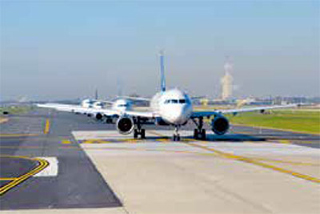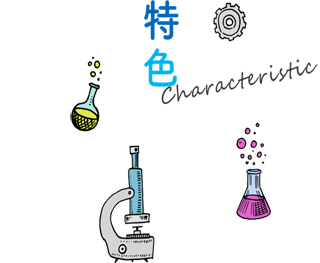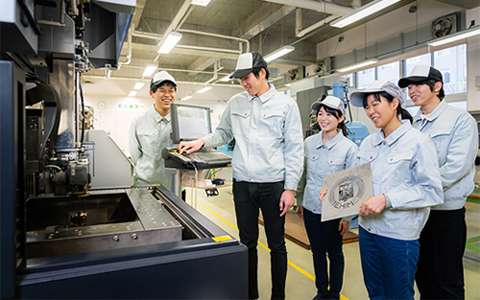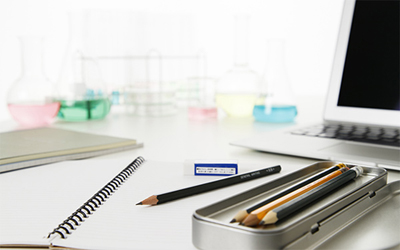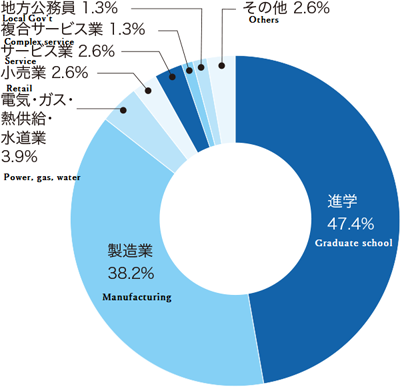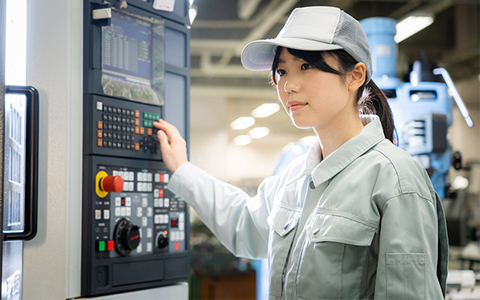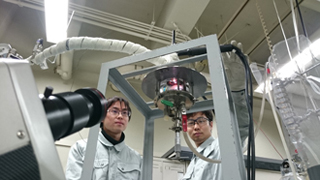Mechanical Engineering
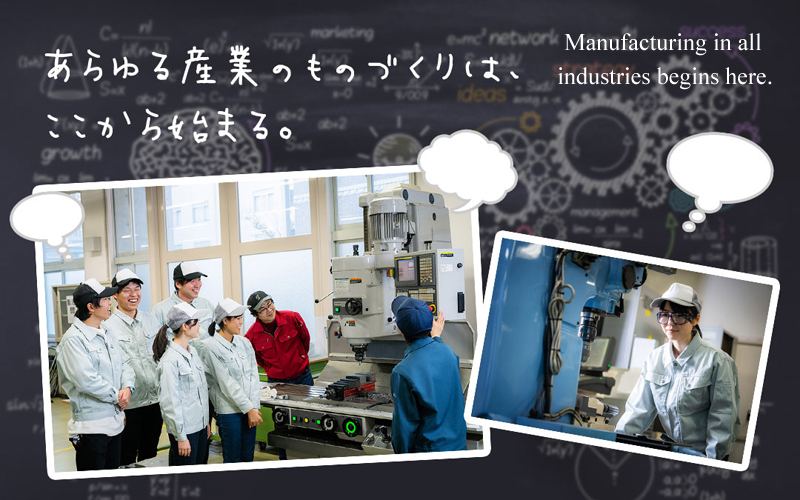
Engineering in our life: Airplane technology
|
Why do airplanes fly?
It is because their wings generate lift.
In fluid mechanics you will learn the “why”.
The lift requires force which overcomes drag and moves the airplane forward.
In thermodynamics you will learn about powered engines.
In order to carry a lot of people and luggage safely, we need to design a sturdy and light aircraft.
In strength of materials, you learn about unbreakable structures by calculating forces.
And, in order to fly around freely, each part, such as a rudder, should be appropriately manipulated to maneuver the airplane;
you will learn about a mechanism and methods to control it in control engineering and dynamics of machinery.
Also you will learn how to design and integrate parts of the airplane.
Airplanes are a cluster of mechanical technology. |
|
|
Mechanical engineering is the basis of manufacturing, not only until but also from now.
Mechanical engineering is an
academic discipline that literally makes machines and enriches society through
"manufacturing."
You will learn knowledge to create various machines such as automobiles, planes, ships, rockets, robots, construction
machines, agricultural machines, and machines operating in factories.
As a basis for that, you will indispensably learn four fundamental mechanics:
strength of materials, fluid mechanics, thermodynamics, and dynamics of machinery.
By learning strength of materials, you can provide a machine sufficient strength.
By fluid mechanics you can suppress flow resistance.
Thermodynamics to change energy into an easy-to-use form.
Dynamics of machinery to create a machine that is tough against vibration and breaking.
Of course, machines can not be created by these mechanics described above.
Some machines are powered by electricity or run automatically through human-given programs.
We also need abilities to obtain information from the world and spread to the world.
Sometimes we have to legally protect our technology that we have elaborated.
Manufacturing is diversifying.
Therefore, the Mechanical Engineering Course covers subjects necessary for
future manufacturing such as mechatronics, control theory, technical English,
and intellectual property.
Both the Mechanical Engineering
Course and the Intelligent Systems Course are designed to enrich society
through "manufacturing" and they have much in common.
Therefore, teachers involved in both courses will work together on education.
|
|
2nd year
Applied Mathematics I/II,
Applied Mechanics,
Practice on Machine Work,
Strength of Materials I/II,
Exercise in Strength of Materials,
Thermodynamics I/II,
Exercise in Thermodynamics,
Materials Science and Engineering for Mechanical Engineer,
Structured Programming,
Practice on Computer-Aided Design,
Design of Machine Elements,
Robot Kinematics,
Applied Manufacturing,
Dynamics of Machinery I,
Exercise in Dynamics of Machinery,
Fluid Mechanics I,
Exercise in Fluid Mechanics,
Introduction to Electrical and Electronic Engineering
3rd year
Exercise in Heat Transfer,
Corporate ethics,
Dynamics of Machinery II,
Industrial Economic Theory,
Control Engineering,
Exercise in Control Engineering,
Design and Drafting,
Heat Transfer,
Fluid Mechanics II,
Internship,
Mechanical Engineering Laboratory*1,
Intellectual property rights,
English for Mechanical Engineering,
Seminar for Career Development,
Mechatronics / Artificial Intelligence,
Control / Welfare Engineering,
Fluid Engineering,
Introduction to Ship Performance,
Introduction to Ocean Engineering
*1 “Mechanical Engineering
Laboratory” is offered only in the Mechanical Engineering Course.
4th year
Energy System Engineering,
Robotics & Bioengineering*2,
Factory Management,
Graduation Research
*2 In the Mechanical
Engineering Course, you can take “Robotics & Bioengineering” from the 4th grade.

Students in both the Mechanical Engineering Course and the Intelligent Systems Course can take common
employment support.
There are job offers from 750 companies for about 50 applicants in both courses,
and the job openings-to-applicants ratio always exceeds 15 times.
Most of the employment destinations are manufacturing, e.g. automobiles, heavy industries,
shipbuilding, electric machinery, steel, machinery.
And energy-related services such as electric power and gas.
There are also jobs in government's technical workers, telecommunications business, transportation industries, etc.
You also have the opportunity to pursue a teaching career at an industrial high school.
As mentioned above, you can get your job with various possibilities.
With the recent increasing importance of a graduate school, the number of graduate students is increasing year by year.
In the last two years, more than half of the students are enrolled at our graduate school,
aiming to acquire advanced and specialized abilities in mechanical engineering. |
Career Status in FY2017 (as of May 1, 2018)
|
|
|
In the 4th year's graduation research, you will be assigned to a laboratory and carry out your research.
You will obtain true ability that will be valuable after graduation: applications of your knowledge learned so far,
acquisition of missing knowledge by yourself, summarizing ideas through discussions with faculty members and
seniors in your laboratory, communicating the results to others.
Examples of research include the utilization of micro-dynamics, development of next-generation materials
by ultra-high-pressure synthesis, utilization of hydrogen energy, reliability
evaluation of carbon reinforced fiber plastics (CFRP), elucidation of microflow,
grasp of flow phenomenon by machine learning, in-liquid plasma chemical vapor deposition,
zero emission process, development of a mathematical model that explains the phenomenon well. |
In-Liquid Plasma Chemical Vapor Deposition |

